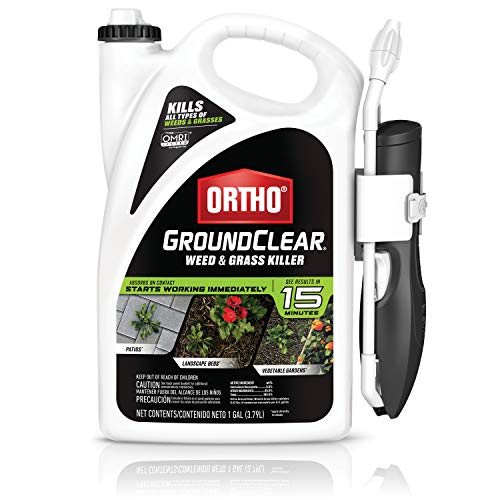It takes a lot of hard work and effort to create a lush green lawn devoid of weeds. However, you may wonder if adding fertilizer to feed your lawn may end up helping weeds grow. We asked experts to weigh in on this problem and have some interesting answers to give you.
When you put down lawn fertilizer, it doesn't only feed your yard but can easily help weeds grow. As an alternative, you can put down fertilizer that includes weed killer, or get rid of weeds before adding fertilizer to the yard.
If weeds are a constant problem on your property but you want to use lawn fertilizer, you'll want to keep reading. In this article, we will cover how to deal with weeds using different solutions. And we'll address how to apply lawn fertilizer so it nurtures the grass and plants, not pesky unsightly weeds.
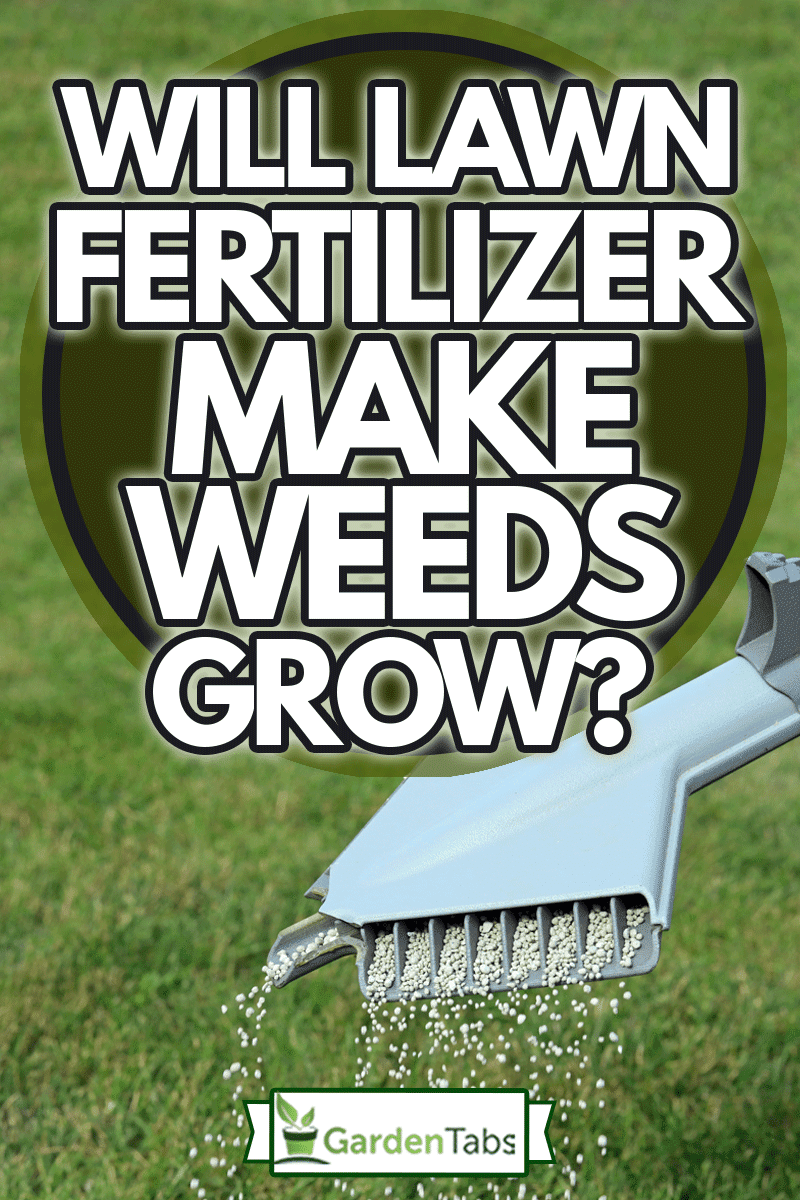
Lawn Fertilizer And Weed Growth
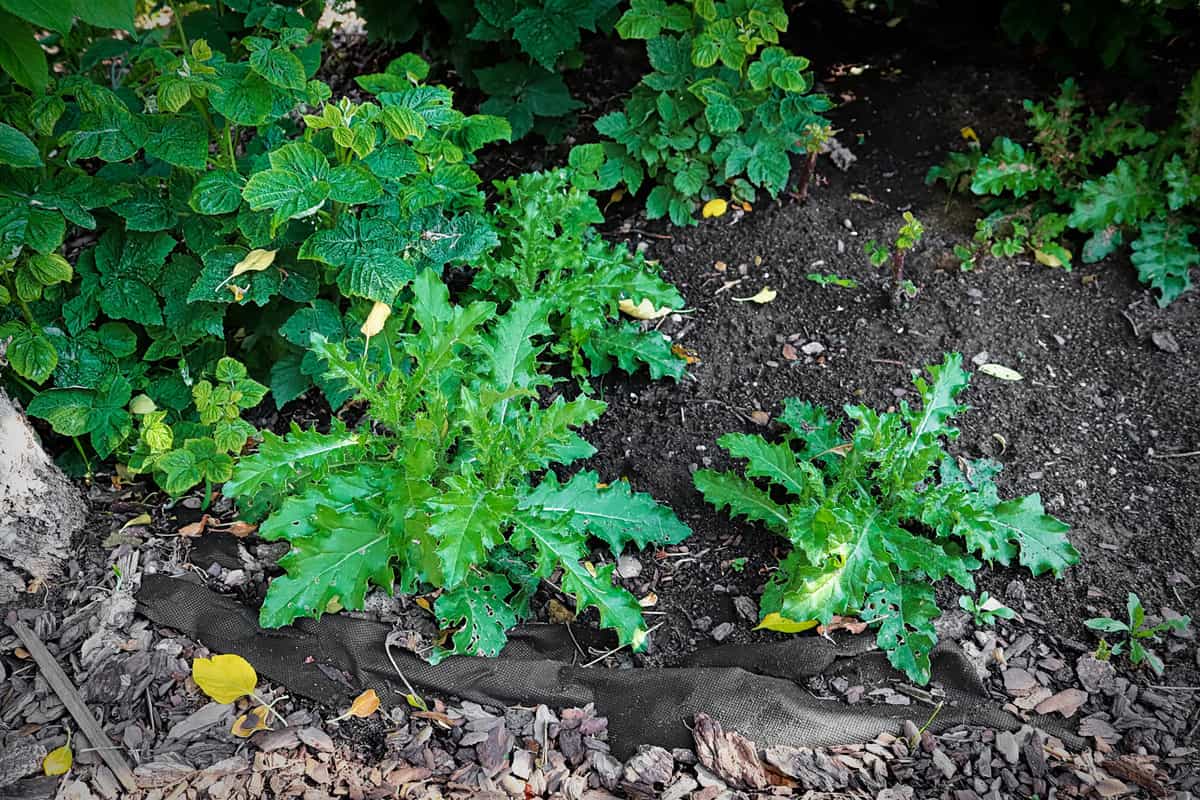
There's nothing like the look and feel of a beautiful emerald green lawn full of healthy grass. Or, you may love the look of a manicured garden surrounded by shrubbery and trees. No matter what type of yard you have, it is essential to add fertilizer or compost to improve the soil.
Soil that is incredibly sandy, has high amounts of clay, or has an undesirable pH level may make it difficult for plants to thrive.
However, by adding lawn fertilizer at optimal times of the year, you can improve the soil. Fertilizer adds beneficial nutrients like phosphorous, potassium, and nitrogen and supports better drainage and aeration.
Read more: How Much Compost Do You Add To Sandy Soil?
When a lawn is choked with weeds, other plants have a harder time getting adequate water, nutrients, and space for their roots to grow. Plants that have heavy competition from weeds may show stunted growth or gradually wither and die.
Many weeds have invasive and extensive root systems that reach very deep into the earth. When removing weeds, it is critical to pull them as early as possible and completely remove their roots. If there are any remnants of roots left behind, a weed might try to pop back up and propagate the lawn.
Benefits Of Lawn Fertilizer
There are a few different ways to improve a lawn and encourage healthy grass. Many homeowners routinely aerate the soil before adding lawn fertilizer, compost, or mulch. Each of these substances provides different benefits to the soil, which in turn supports healthy plants and strong root systems.
Lawn fertilizer is usually available in a quick-release or slow-release formula and is typically applied to lawns around March or April. When temperatures are around 55 degrees Fahrenheit and the soil has thawed out, it is more receptive to the nutrients within a fertilizer.
If fertilizer is only being applied to grass-covered lawns and not areas where there are flower or vegetable gardens or greenery, there are a few different options to consider.
Warm-season grasses should be treated with a select blend of fertilizer at a different time than cool-season grasses. Overall, the key elements that a fertilizer should have are substantial amounts of nitrogen, phosphorous, and potassium.
Also, keep in mind whether it is better to use a fertilizer that is liquid, pellets, organic, synthetic, or granules.
Some fertilizers should be watered shortly after putting down on a lawn, while others should be allowed to settle a bit before watering. If adding fertilizer before it rains, avoid doing so before a heavy storm.
Read more: Can You Dissolve Fertilizer In Water? Should You?
Should I Fertilize If I Have Weeds?
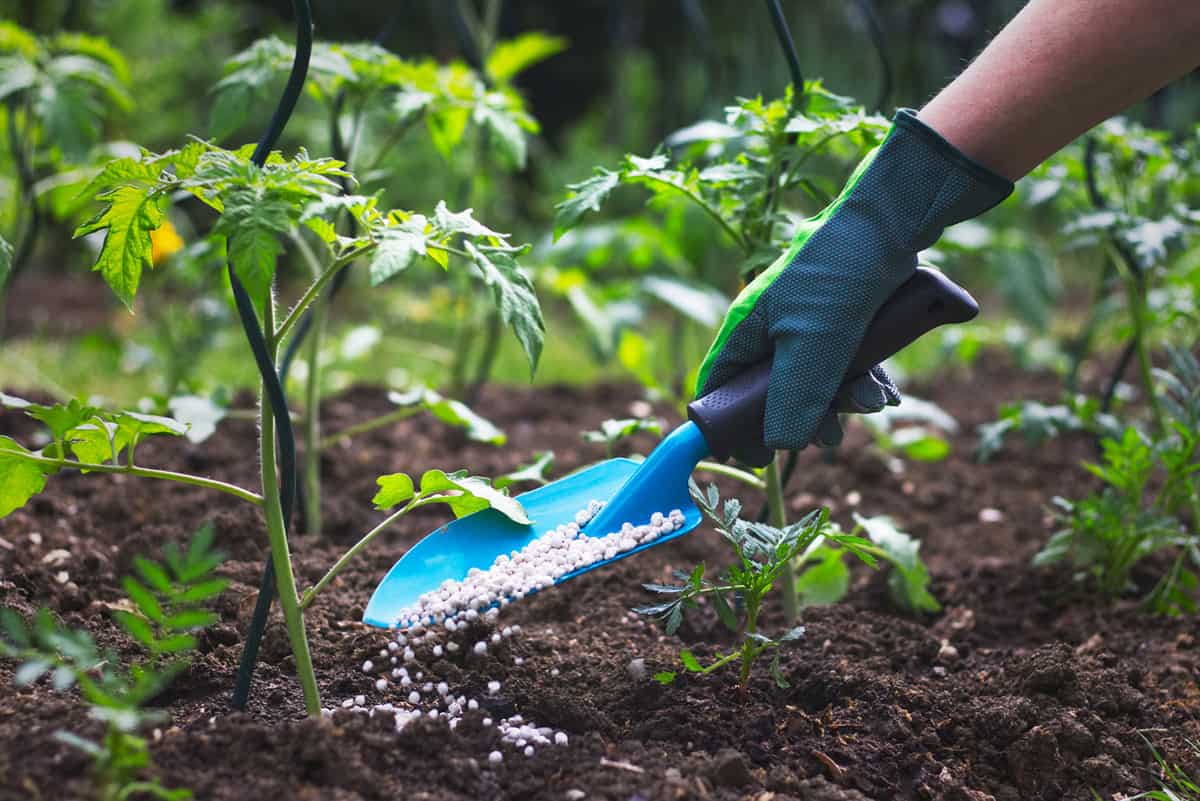
It is a pressing dilemma if your yard is overrun with weeds but your grass and other plants could use some fertilizer.
Ideally, it is better to eradicate weeds before things get out of hand and before adding any fertilizer. If you add fertilizer when weeds are present, if you don't fully remove weeds and their roots, they could flourish and spread like wildfire.
Also, if you add fertilizer to your lawn before removing weeds, the invasive plants could rob your grass and plants of any nutrients and benefits. You can try your luck adding a fertilizer that has an included weed killer. However, results may vary.
A good idea is to spray weeds or remove them from your lawn, and then add fertilizer. If you use a herbicide, you should wait one week before putting down any fertilizer.
Check out this lawn fertilizer on Amazon.
Can You Spray For Weeds And Fertilize At The Same Time?
If you want, you can spray for weeds and add fertilizer at the same time. However, you may see better results by treating your yard for weeds first before adding any fertilizer.
There are fertilizers available that include an herbicide to kill weeds. Usually, most people maintain a gap when adding fertilizer and spraying for weeds instead of doing both at the same time.
Depending on the products that you use and the needs of your lawn, you can decide whether it's right for you to spray for weeds and add fertilizer hours apart.
Check out this fertilizer that includes a weed killer on Amazon.
Should You Spray For Weeds Before Or After Fertilizing?
Typically, it is better to spray for weeds before you add any fertilizer. If there are still weeds present on your lawn, adding fertilizer will only help them get strong, grow faster, and feel right at home.
Instead, do what you can to manually remove weeds and their roots and spray down the yard with an herbicide. After waiting anywhere from a few hours or a week or two, feel free to add fertilizer.
Remember, depending on the state of your lawn and the type of products you use, you can get away with spraying weeds after fertilizing or at the same time. However, your choice of fertilizer might reduce the effectiveness of a weed killer. So, it's better to spray weeds beforehand.
Check out this weed killer spray on Amazon.
Why Do I Have So Many Weeds On My Lawn?
Weeds look for the same things that your grass or garden plants do to survive and thrive. When there is an adequate amount of sunlight, water, quality soil, and nutrients, weeds will happily spread.
The problem with weeds is that they are quick to send out their seeds so new plants spring up, and they grow pretty quickly. Additionally, most weeds have extensive root systems that grow deep so they can push out emerging grass or younger plants.
Some weeds may look pretty, but don't let them linger in a yard. Regularly check on the lawn and use herbicides to kill weeds. Pull up weeds as soon as you see them, and don't let species that spread quickly set up shop on your property. Do not neglect your lawn or you might have more weeds than anything else.
What Is The Fastest Way To Get Rid Of Weeds?
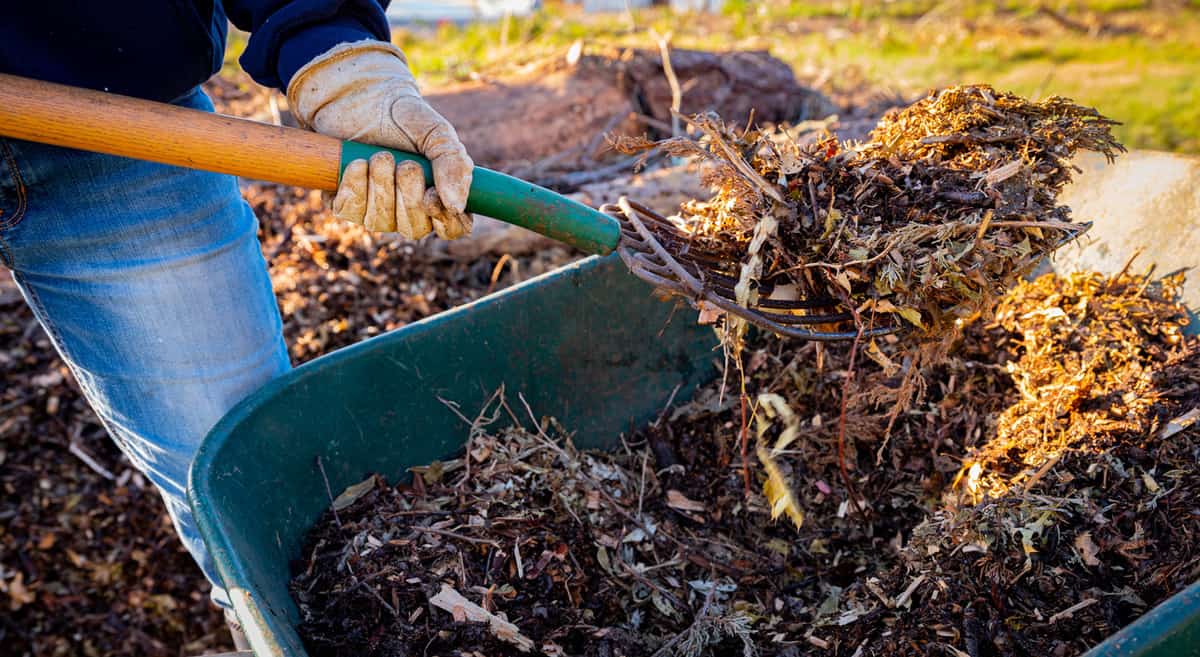
The fastest way to get rid of weeds is to be proactive and take preventative measures. Be vigilant and get rid of weeds as soon as you see them pop up. Additionally, try treating your lawn regularly using the following methods listed below:
- Aerate the soil regularly
- Use a natural, homemade herbicide
- Spritz the lawn with white vinegar
- Cover the yard in mulch
- Dust the lawn with cornmeal
Whatever you do, don't wait until things get very bad for your lawn. Make sure to pull up weeds and their roots completely. Take good care of your yard and encourage your grass and desired plants to thrive and develop strong, deep root systems.
In Closing
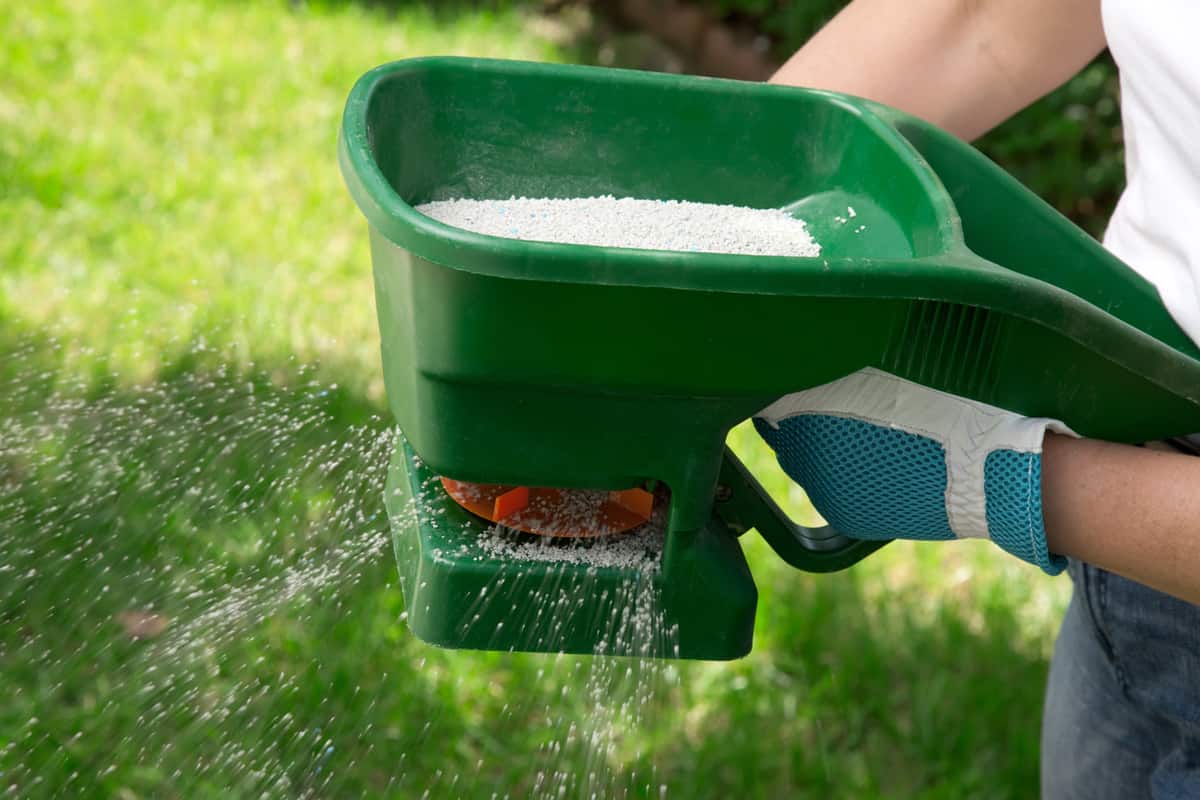
Sometimes it can feel like a never-ending battle thwarting weeds and getting them out of your lawn. Yet, when you need to add fertilizer, you want to make sure beneficial nutrients go to your grass and garden plants, not invasive weeds.
The best thing to do is stay proactive and eradicate weeds from your property before adding fertilizer. Otherwise, aggressive thistles or dandelions will use up all the nutrients from a fertilizer before your lawn can.
If you enjoyed reading this post, you should check out the following articles:



